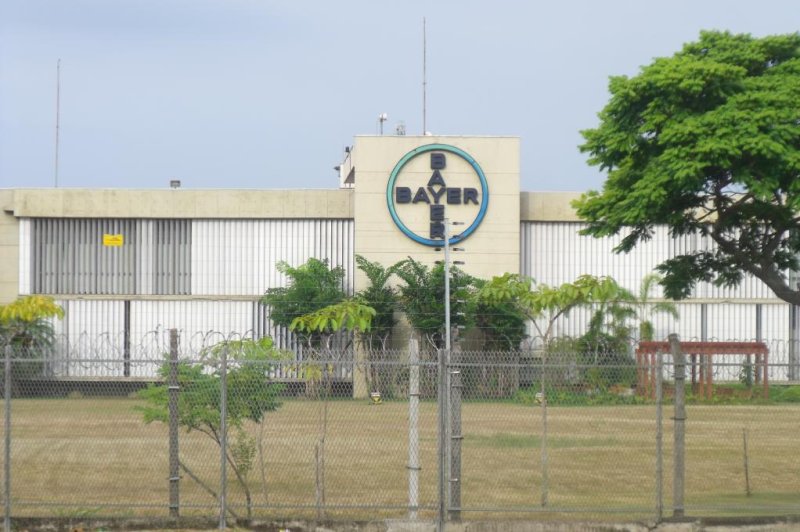Ameeran, a 29-year-old pregnant woman from a village in Sindh province's Qambar district, has been taking refuge in a relief camp set up in the provincial capital Karachi since record torrential rains caused massive floods in the country in recent days.
"The roads were completely wiped away by the rain and flood. It took my family three days to reach Karachi," she said.
The unprecedented rains and melting glaciers in Pakistan's northern mountainous regions have brought floods that have so far affected over 33 million people and submerged a third of the country.
The floods, which have destroyed homes, land, crops and livestock, have followed record-breaking summer temperatures. Pakistan's government and the United Nations have both blamed climate change for the extreme weather and the devastation it has brought.
At least 1,314 people, including 458 children, have lost their lives because of the environmental catastrophe, Pakistan's National Disaster Management Agency said.
Bad food and dirty washrooms?
Vulnerable sections of the population, such as pregnant women and children, are particularly affected.
The United Nations Population Fund (UNFPA) said last week that almost 650,000 pregnant women in flood-hit areas require maternal health services to ensure a safe pregnancy and childbirth — with up to 73,000 expected to give birth in September.
The UN agency stressed that the women will need skilled birth attendants, newborn care and support. "In addition, many women and girls are at an increased risk of gender-based violence (GBV) as almost 1 million houses have been damaged," it said in a press release.

Floods in Pakistan have so far affected over 33 million people and submerged
a third of the country
In Sindh province, which is among the worst-hit regions, authorities have set up tens of relief camps to provide shelter to those displaced by the floods.
But Ameeran said that the camps don't much to offer for pregnant women.
The food provided at the camp is also a problem, she said. "We are not used to eating such oily and spicy food, it bloats my stomach and causes acidity, I try to avoid it but then I have no other option," she said.
Eighteen-year-old Rubina, who is seven months pregnant, said she hasn't received proper food since reaching the camp two weeks ago.
"It has been a fortnight in this relief camp, and not even one day I have been able to eat something proper. I feel dizzy all the time. When I was at home I used to have milk, yogurt and fruits regularly but here all you get to eat are the spicy and oily rice which causes a lot of discomfort to me," she said.
"The washrooms are also very dirty."
Lack of female doctors and midwives
At campsites, many of them government schools turned into relief camps, stranded people and their livestock live side-by-side in cramped conditions without sanitation. And many women find it distressing to share living space with strangers, particularly men.
At one of the camps, 40-year-old Mansha said she remains awake all night as sleeping in a room in the presence of non-related men "makes me feel uncomfortable."
Mansha, from the town of Kandiaro in Sindh, is currently pregnant with her fourth child.
Pregnant women at the camps also complain of a lack of female doctors and midwives to help them.
Most of them have resisted being examined by visiting male doctors as in Pakistan's conservative society, it is often deemed inappropriate for women to consult male doctors, especially for gynecological issues.
"There is already a shortage of gynecologists and the floods have made the condition worse," said the Director General of Sindh's health services, Muhammad Juman.
Pointing out that the natural calamity has caused severe damage to the province's health infrastructure, he said authorities are setting up makeshift facilities to meet the urgent needs of the pregnant women.
"The health department of Sindh is devising a mechanism to deal with the destruction caused to health facilities and a special budget of 800 million rupees ($3.65 million or €3.67 million) will also be released for it in the next week," he underlined.
Sidra Basit, a gynecologist in Karachi who has been visiting the camps to treat pregnant women, said most of the women she has seen are extremely anemic.
That's the reason behind their unstable blood pressure, she noted, adding that iron deficiency could also create complications at the time of childbirth and increase the chances of post-partum hemorrhage, which is when women bleed heavily after giving birth.
"These women are also traumatized by the disaster they faced. Anxiety and depression in such mothers can adversely affect the mental health of the child too," she said.
The floods and their effects show how women are especially vulnerable to and hit hard by environmental disasters.
Struggling to avert danger
Even as flood waters are receding in Punjab, Khyber Pakhtunkhwa and Baluchistan provinces, the situation remains alarming across Sindh.
Authorities there breached the nation's largest freshwater lake, displacing up to 100,000 people from their homes in the hope of draining enough water to stop the lake from bursting its banks and swamping more densely populated areas.
But water levels in the lake, to the west of the Indus river in Sindh, remain dangerously high.
The floods are also a huge burden for an economy already needing help from the International Monetary Fund.
The United Nations has called for $160 million in aid to help the victims of the floods but Pakistani officials say the cost of the damage is far higher than that.
Edited by: Srinivas Mazumdaru







.jpg)




















